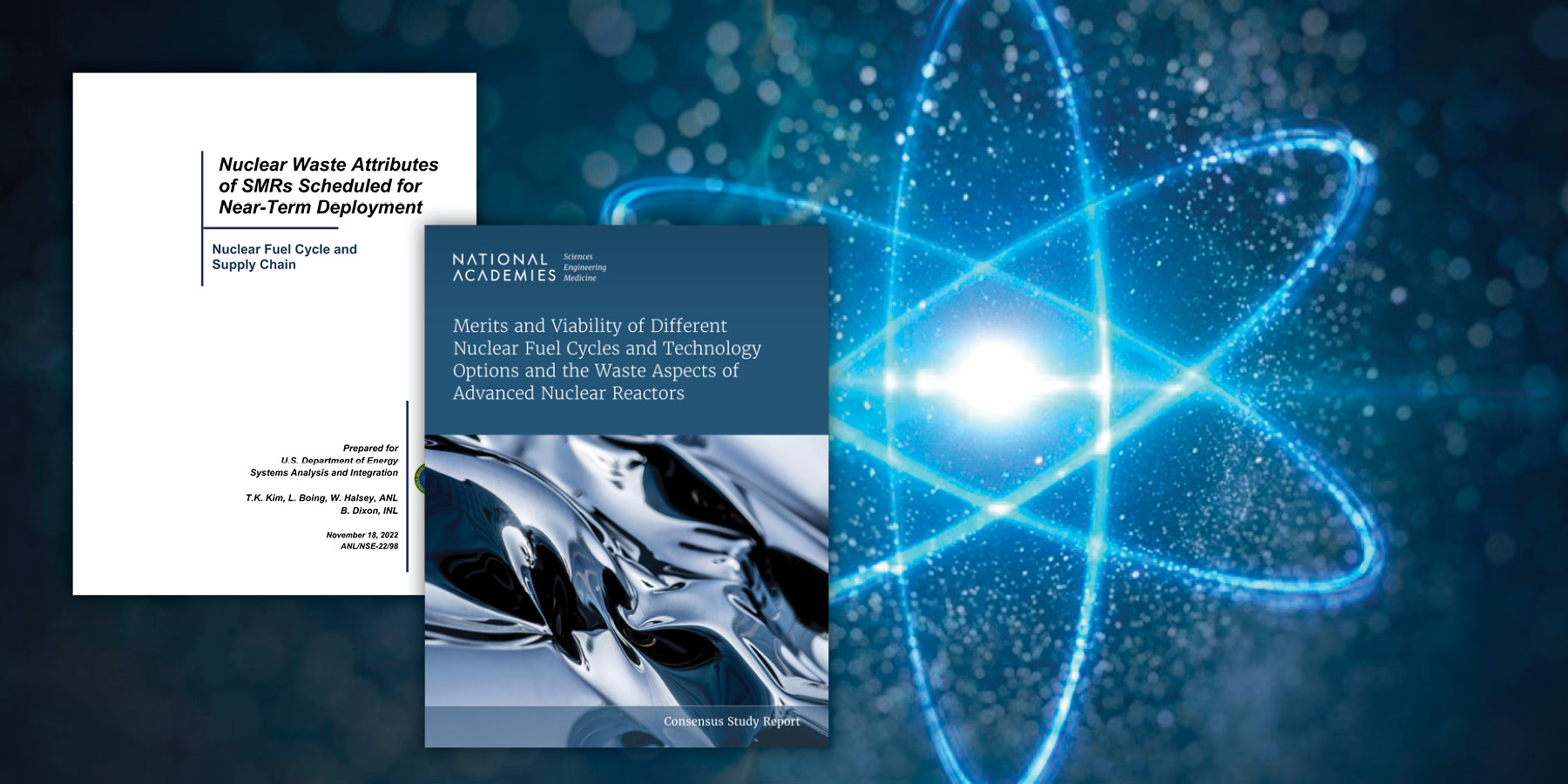William “Ike” White addresses the audience at INTEC, which gathered to celebrate the completion of the spent fuel wet-to-dry project at the INL site. (Photo: DOE)
At Idaho National Laboratory, Department of Energy leaders joined tribal, state, and local officials; contractors; and workers on March 28 to mark a recent milestone with the state of Idaho nearly 25 years in the making. The milestone was the completion of a spent fuel wet-to-dry project more than nine months ahead of a 1995 Idaho Settlement Agreement deadline.
A loaded MP197HB cask is prepared for departure from the Vermont Yankee decommissioning site to West Texas. (Photos: Orano TN)
The rapid changes in the nuclear energy industry over the last decade, driven in part by fluctuating energy market prices and an aging fleet of reactors, have led to the closure of multiple reactors in the United States and other countries. These closures have increased the need for larger and more efficient ways to manage low-level radioactive waste processing and transport capacities. The safe transport of radioactive material is a key component of the overall nuclear industry reliability. Though sometimes perceived as a bottleneck and costly, it is necessary to send waste material to disposal.
A 3D view of the TN Eagle used fuel cask. (Image: Orano)
Orano Group subsidiary Orano NPS announced that Swiss electrical utility Axpo has selected the company to provide its TN Eagle used nuclear fuel casks over the entire operating period of the Leibstadt nuclear power plant in Switzerland.
A rendering of ISP’s proposed interim storage facility in West Texas. (Image: ISP)
A federal appeals court rejected a lawsuit brought by environmental groups challenging the Nuclear Regulatory Commission’s licensing of a consolidated interim storage facility (CISF) for spent nuclear fuel in Andrews County, Texas. The U.S. Court of Appeals for the D.C. Circuit found that the NRC reasonably applied its hearing regulations when approving Interim Storage Partners’ (ISP) license for the facility.
An aerial view of ORNL’s main campus. (Photo: ORNL)
The Gateway for Accelerated Innovation in Nuclear (GAIN) announced the three recipients of its fourth and final round of 2022 vouchers on October 10. The vouchers were awarded to Curio Solutions, which is developing a spent fuel recycling process, and to two companies that are separately investigating advanced reactor siting—Elementl Power and the Tennessee Valley Authority (TVA). The funds for each award will go directly to Oak Ridge National Laboratory.
Spain’s nuclear power plants are to use Holtec’s HI-STORM spent fuel storage technology. (Image: Holtec)
Holtec International announced that its flagship HI-STORM Multi-Purpose Canister (MPC) spent fuel storage technology was selected by Spain’s national company Enresa for a fleet of six nuclear power reactors at four plant sites in the country. Equipos Nucleares S.A. (ENSA), a Cantabria-based manufacturer of equipment for the Spanish nuclear fleet, was named a consortium partner with Holtec in the order, which was conducted under European Union procurement rules.
An illustration of Switzerland’s proposed deep geological repository. (Image: Nagra)
Nagra, Switzerland’s national cooperative for the disposal of radioactive waste, has announced that it has selected Nördlich Lägern as the site for a deep geological repository for radioactive waste. According to Nagra, extensive investigations have shown that Nördlich Lägern, located in northern Switzerland near the German border, is the most suitable area for a geologic repository with the best overall safety reserves.
Ontario’s South Bruce area is being considered as a potential host site for a spent fuel repository. (Photo: NWMO)
Canada’s Nuclear Waste Management Organization (NWMO) is shifting the timing for selecting a preferred site for a spent nuclear fuel repository to the fall of 2024, a full year later than previously planned. The NWMO, a nonprofit organization tasked with the safe, long-term management of Canada’s spent fuel in a deep geological repository, said the delay is the result of several provincial lockdowns associated with the COVID-19 pandemic.
Myrna Simpson conducts molecular biogeochemistry research at the University of Toronto Scarborough. (Photo: Ken Jones/University of Toronto)
Researchers at three Canadian universities are studying whether bentonite clay—used as an engineered barrier in Canada’s proposed deep geological repository—can support sulfide-producing microbes that can eat away at the canisters containing spent nuclear fuel.


















